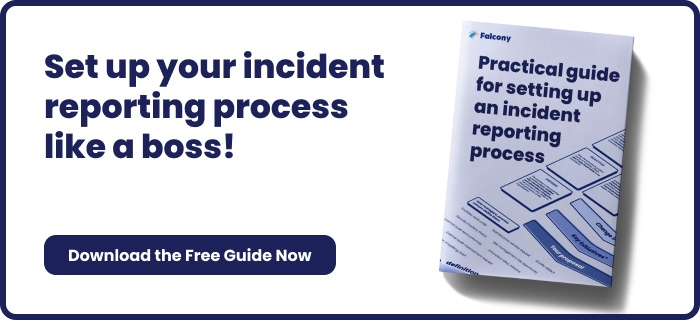In today's fast-paced and interconnected world, incidents and disruptions can occur at any time,...
What is Incident Routing Automation?
In today's fast-paced digital world, organizations of all sizes rely heavily on technology to run their operations smoothly. However, with increased reliance on technology comes the risk of incidents and technical issues that can disrupt business operations.
Incident routing automation is a powerful tool that can help organizations manage and resolve these incidents efficiently. In this blog post, we'll explore what incident routing automation is, why it's essential, and how it can benefit your organization.
What is Incident Routing Automation?
Incident routing automation is a process that uses technology to streamline and optimize the way incidents are reported, assigned, and resolved within an organization. It leverages automation tools, algorithms, and predefined rules to ensure that incidents are directed to the right team or individual for resolution. This process helps reduce response times, minimize human error, and enhance overall incident management.
Key Components of Incident Routing Automation
-
Incident Reporting: The process begins with an incident being reported, either by end-users or automated monitoring systems. These incidents can range from IT problems like server outages to customer support requests or security breaches.
-
Incident Categorization: Once an incident is reported, it needs to be classified based on its severity, impact, and type. This classification helps determine the appropriate response and priority level.
-
Automated Routing: Incident routing automation relies on predefined rules and algorithms to determine where the incident should be routed. These rules take into account factors like incident type, location, severity, and the availability of support staff.
-
Assignment: After routing, the incident is assigned to the most suitable team or individual for resolution. This ensures that the right expertise is applied to address the issue.
-
Monitoring and Escalation: Automated systems can monitor the progress of incident resolution. If there is no progress or the incident escalates, the system can trigger alerts and escalate the incident to higher levels of management or specialized teams.
Why is Incident Routing Automation Essential?
-
Efficiency: Manual incident management can be time-consuming and error-prone. Automation streamlines the process, reducing response times and ensuring that incidents are handled promptly.
-
Consistency: Automation enforces consistent incident handling based on predefined rules, ensuring that all incidents are treated fairly and in accordance with best practices.
-
Resource Optimization: By routing incidents to the most appropriate team or individual, incident routing automation optimizes resource allocation, ensuring that experts are working on the right tasks.
-
Scalability: As organizations grow, the volume of incidents can increase significantly. Incident routing automation scales with your organization, handling a higher volume of incidents without a proportional increase in manual effort.
-
Data Insights: Incident routing automation generates valuable data and analytics that can help organizations identify trends, weaknesses, and areas for improvement in their incident management processes.
Conclusion
Incident routing automation is a critical component of modern incident management. By leveraging technology and predefined rules, organizations can respond to incidents more efficiently, consistently, and effectively. This not only improves customer satisfaction but also enhances the overall resilience and reliability of an organization's operations. If you haven't already, it's time to consider implementing incident routing automation as part of your organization's incident management strategy.
Are you looking for a tool to report incidents or any other issues in your organisation? Falcony | Observe ticks all the boxes for incident management, is easy to customise, enables real dialogue and is a lot more.
We are building the world's first operational involvement platform. Our mission is to make the process of finding, sharing, fixing and learning from issues and observations as easy as thinking about them and as rewarding as being remembered for them.
By doing this, we are making work more meaningful for all parties involved.
More information at falcony.io.

Related posts
How The Operating Environment Affects Incident Reporting
Incident reporting is a very contextual process. For incident reporting to work effectively in...
Real-time reporting: The key to effective incident management and how software can facilitate it
Effective incident management is critical for addressing and resolving issues in a timely and...





